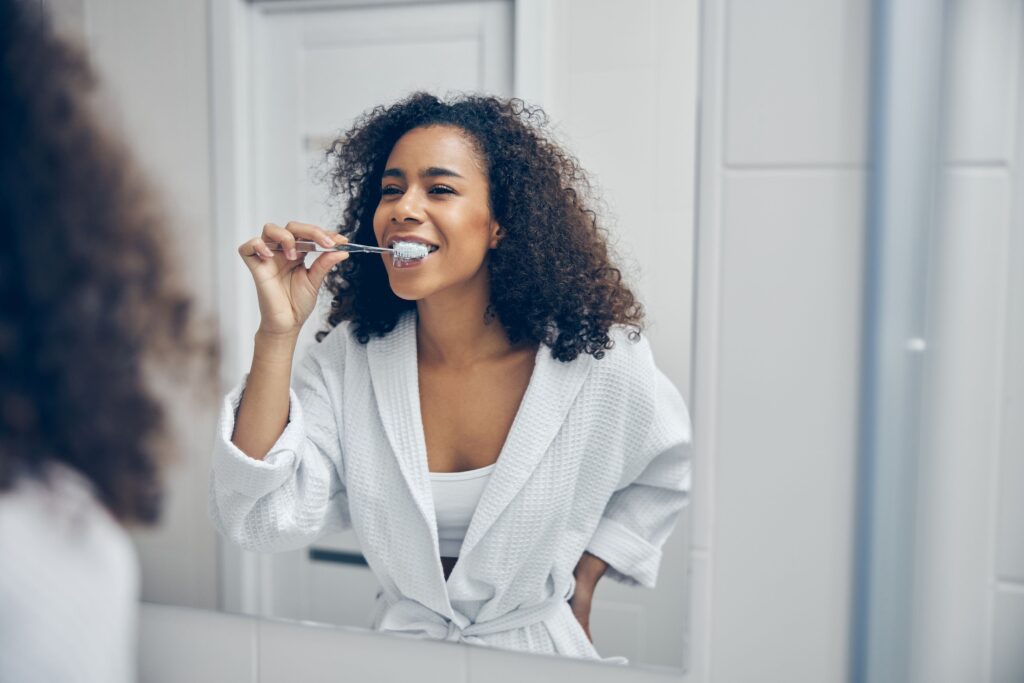
Brushing and flossing twice daily is imperative for preventing oral issues like cavities and gum disease because it consistently removes harmful plaque buildup and bacteria. However, if you rinse your mouth with water after scrubbing your teeth, you might be missing out on some key benefits of your daily dental hygiene routine.
If you’re wondering whether it’s best to swish with water after cleaning your mouth, continue reading to learn how it can potentially impact your dental health and why it’s not usually recommended!
What is Fluoride?
You likely already know that brushing your teeth eradicates unwanted residue and particles in your mouth that can cling to your enamel and contribute to dental problems, but did you know that that it can also potentially strengthen your enamel?
Many toothpastes contain fluoride as the active ingredient, which remineralizes the protective outer layer of your teeth. It combines with various minerals in your saliva, like calcium and phosphate, to form a substance called fluorapatite. This sticks to the calcium ions in your enamel to improve its ability to resist acid damage and other injuries that can harm your grin, but it needs to stick to your teeth for several minutes to provide the greatest benefit.
How Does Rinsing After Brushing Affect My Dental Health?
Most patients sip a small amount of water to swish and spit after brushing because some chemicals in toothpaste aren’t safe to swallow. While this habit can prevent irritation from ingesting these ingredients, it also removes the fluoride content that you’ve just applied to your teeth. Unfortunately, that means you won’t rebuild your enamel as effectively as you would if you skipped the extra rinse.
What Is the Proper Way to Brush My Teeth?
The ADA (American Dental Association) recommends that you gently scrub your teeth for a full two minutes every morning and evening to remove plaque and bacteria. However, studies show that the average person only brushes for about 45 seconds, which doesn’t give the fluoride in your toothpaste enough time to work to strengthen your enamel actively. If you rinse immediately after, you’re not likely to enjoy the benefits of this ingredient.
As a result, experts recommend that you don’t rinse after brushing. If you’re concerned about excess toothpaste leftover in your mouth, try using less of it to begin with. Instead of squeezing a large portion, try using a pea-sized dollop on your toothbrush to reduce your exposure to any harmful chemicals.
If you’re worried you’ve already developed weakened enamel, the best next step is to contact your dentist!
About the Author
Dr. Dana Jones has 30+ years of experience helping people improve their lives by enhancing their dental health. He graduated from the University of Buffalo School of Dental Medicine, and continues to hone his skills with ongoing training with the Dawson Center for Advanced Dental Studies and other prestigious organizations. He offers a wide array of services to meet all your dental needs conveniently under one roof and utilizes advanced technology to enhance patient comfort and treatment accuracy. If you’ve developed cavities or gum disease, you can request an appointment on the website or call (203) 438-8919.

